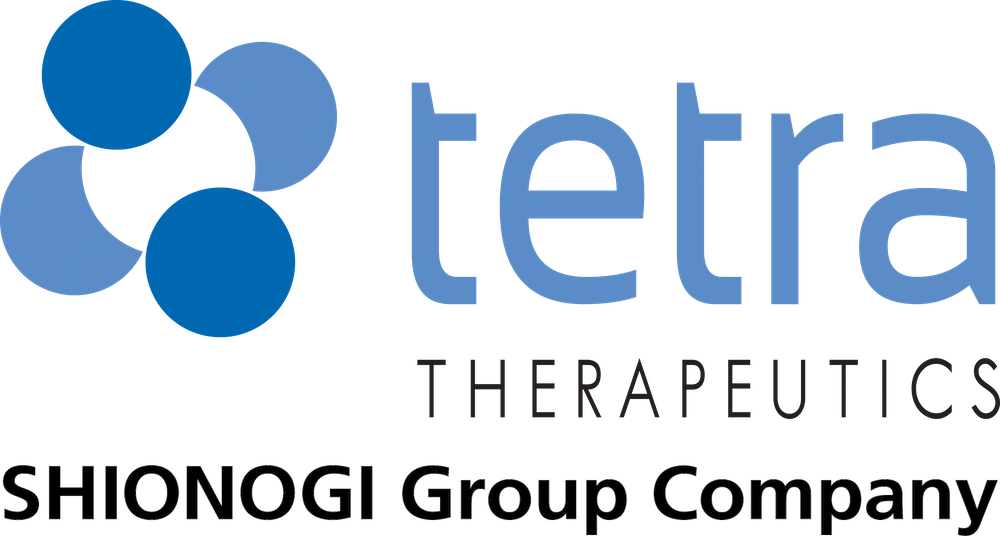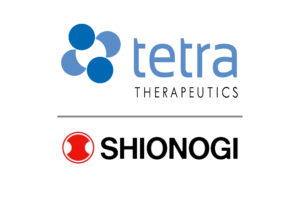Leading inventor of Alzheimer’s disease treatments, Dr. Mark Gurney, continues to grow his West Michigan-based lean, biotech start-up – Tetra Discovery Partners, LLC (Tetra) – through the support of a collaboration of Michigan entrepreneurial and funding programs. Tetra is working on the development of three new drugs targeted at improving treatments for Alzheimer’s, depression, and traumatic brain injuries.
“Tetra is a promising start-up that has effectively tapped into statewide entrepreneurial programs,” said Anna Bier, Technology Business Consultant for the Michigan Small Business & Technology Development Center (MI-SBTDC). “They have also done very well at leveraging various state and Federal funding mechanisms to raise over $12 million in capital.”
Dr. Gurney started building Tetra in November 2010. After he submitted his first grant proposal to the National Institute for Health (NIH) he realized he needed some guidance on making the transition from the world of education and corporate America to living the dream of being self- employed. Prior to Tetra, he had taught at the University of Chicago Medical Center and Northwestern University’s Feinberg School of Medicine, and held executive positions at Genomics Research and deCODE genetics.
“The science was well developed but the business wasn’t yet,” stated Dr. Mark Gurney, Founder and CEO of Tetra Discovery Partners, LLC. “I came from an environment where someone else wrote the checks and dealt with the bureaucracy of business.”
His initial grant application to the NIH was in direct response to their concern that pharmaceutical companies weren’t investing enough in new depression drugs; especially, considering many of the current drugs on the markets have patents that are nearing expiration. The application process takes about six to eight months and it is here where he stumbled a bit. The validity of his business was being questioned as it was just him and his laptop. He then started reaching out for business assistance and was referred to the MI- SBTDC by the Grand Valley State University’s (GVSU) Center for Entrepreneurship & Innovation, where he began working with MI-SBTDC Technology Business Consultants, Mary Sue Hoffman and Anna Bier.
“Anna and Mary Sue are my heroes!” shared Dr. Gurney. “Anna played a key role in helping me take the business from being virtual to being a ‘real’ company and Mary Sue’s support helped me obtain our initial matching grant from the Michigan Emerging Technology Fund (METF).”
Through the METF grant of $25,000 and guidance from Bier and Hoffman, Tetra was able to begin the commercialization process of developing its initial brand identity, Web site, and physical presence. This work contributed to Tetra receiving its first Phase I NIH Small Business Innovation Research (SBIR) award of $700,000 to be paid out over the course of two years, which was a huge achievement since the normal award is $150,000 for one year.
“Working with a biotech start-up has been a rewarding experience,” said Mary Sue Hoffman, Technology Business Consultant for the Michigan Small Business & Technology Development Center (MI-SBTDC). “Our Tech team (Bier, Hoffman and John Balbach) worked with Dr. Gurney to negotiate a business conversation initially with the NIH during the Phase I application process but then with other funding mechanisms that assisted him in receiving multiple grants and matching funds.”
The funding from the Phase I grant allowed Tetra to begin working on the chemistry for the depression drug. It was during this work that Dr. Gurney obtained insight into developing a drug to treat memory loss in Alzheimer’s patients. This discovery then allowed Tetra to apply to the NIH Blueprint program, which provides access to their Neurotherapeutics Network that offers neuroscience researchers a ‘virtual pharm’ to develop promising hit compounds from chemical optimization through Phase I clinical testing. Tetra was accepted into the $12 million program.
Tetra also received a Phase II SBIR award from the National Institute of Mental Health (NIMH) of $3 million for a three-year period. In a letter to Tetra Investors, Dr. Gurney stated that he had the opportunity to speak with the Director of NIMH, Dr. Thomas Insel, who shared his delight to be funding good science. Tetra also received a $125,000 grant from the Michigan Emerging Technology Fund (METF) as matching funds for the Phase II SBIR award.
“Mary Sue and Anna once again provided helpful insight as they reviewed our commercialization plan and Phase II application,” said Dr. Gurney. “Their input made us more fundable and allowed us to strengthen the application which was instrumental in us securing the award.”
In addition to this funding, Tetra recently received $686,000 from the Grand Angels led seed investment program which included: $366,000 from the Grand Angels and other angel investors, $70,000 from the Grand Angels Side Car Fund, and $250,000 from the Biomedical Research Commercialization Center (BRCC). Tetra in collaboration with Professor Lisa Baker from the Department of Psychology at Western Michigan University (WMU) received a Small Company Innovation Program (SCIP) award for joint studies of Tetra compounds for antidepressant activity in rodents. The $40,000 project will be funded by $20,000 each from Tetra and the Michigan Economic Development Corporation (MEDC), and the research will be conducted in Professor Baker’s laboratory at WMU.
Beyond funding, Tetra has achieved other milestones and has experienced skyrocketing growth. They have grown from just Dr. Gurney and his laptop to securing office and lab space in the life science incubator at the GVSU Cook-DeVos Center for Health Science (Grand Rapids) through the West Michigan Science & Technology Initiative (WMSTI) and lab space at the Bioscience Research & Commercialization Center (BRCC) at WMU (Kalamazoo), and the number of staff has grown from 1 to 3 full-time members. Dr. Gurney also applied for Tetra’s first patent with guidance from information he obtained at a Patent Law workshop held by the Grand Rapids
Innovators Network (GRIN). And the company is also in pre-clinical trials with testing its front running compound for Alzheimer’s disease in Cynomolgus monkeys in Singapore.
“I knew I didn’t have all the expertise or funding resources to grow Tetra on its own,” stated Dr. Gurney. “Through the investments made by the State of Michigan in life science incubators, active support of programs funding high-risk companies at the early stage of development, and access to human capital, Tetra has a greater chance of success.”
Tetra is on the fast track to becoming a key player in the biotech and life sciences industry. The company anticipates its next milestone to be identifying a candidate drug molecule for human clinical trials, which could take 12 to 14 months. Then after that it’s on to preparing a data package for the Federal Drug Administration (FDA) to request an investigational new drug application. Tetra’s goal is to continue producing good science that leads to developing important drugs for the underserved markets.
To learn more about Dr. Gurney’s work and Tetra Discovery Partners, visit www.tetradiscovery.com.


